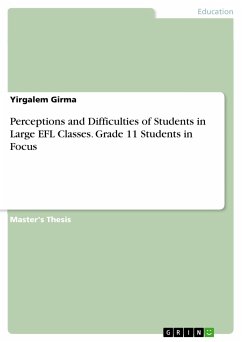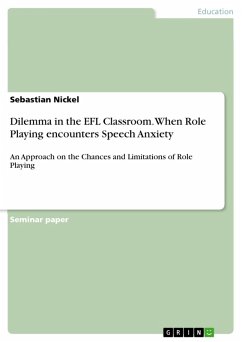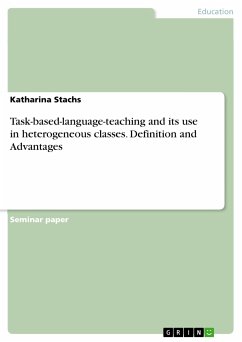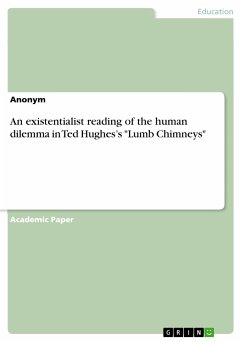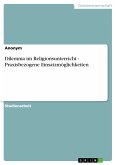Seminar paper from the year 2012 in the subject Didactics - Ethics, grade: 1,0, University of Education Heidelberg, language: English, abstract: Education should "promote young people in the development and strengthening of their whole person," according to Hartmut von Hentig in the introduction to the 2004 education plan. This is a difficult task in today's pluralistic society, in which young people are expected to do more than simply obey and adopt traditional values and norms. This often leads to uncertainty and fear of the future, especially when one's own ideals come into conflict with one another or have to be represented against a majority opinion. In such situations, the question "What should I do now?" often arises. There is no universal answer to this question; however, it is the task of schools and parents to give students some orientation. Ethics classes in particular, which are often referred to as "thinking about morality," should serve as a way of providing this orientation. This can be ensured primarily through philosophical discussions, in which the aim is to assess morally difficult situations and to point out possible courses of action. It is not important to decide between "right" and "wrong", but to be able to reflect on values in a way that is appropriate to the situation. An important teaching method to support this moral judgment is the "dilemma method", which will be discussed in more detail. For this purpose, the term "morality" will be discussed in more detail and it will be defined what is meant by the ability to make moral judgments. Before the Kohlberg stage model is discussed in detail, the stages of moral development are briefly presented in tabular form. After general remarks on Kohlberg's concept, a methodical reflection of the dilemma method follows, in which especially criteria of a good dilemma story are discussed. Subsequently, the use of the method in ethics classes is explained on the basis of a dilemma from the book "On My Sister's Life". For this purpose, the competencies that students can acquire through the use of the dilemma method are first discussed before the course of the lesson is outlined in detail.
Dieser Download kann aus rechtlichen Gründen nur mit Rechnungsadresse in A, B, BG, CY, CZ, D, DK, EW, E, FIN, F, GR, HR, H, IRL, I, LT, L, LR, M, NL, PL, P, R, S, SLO, SK ausgeliefert werden.



